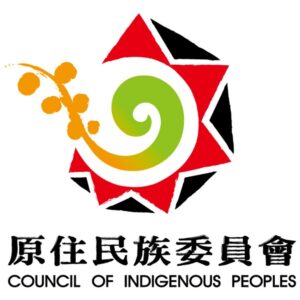
About the Piece
Instrumentation: Full Orchestra: 3 (1 2, alto) 2 (1, EH) 2 (2/bcl), 2 (2/cb) – 2.2.2.0. – hp. 2 perc. Timp – strgs
Duration: 9 min
Program Note:
Iluwan is an orchestral commentary of the tune “naluwan” from the Taiwanese indigenous tribe Pai-Wan. The tune was sang by a male, included in a field recording by ethnomusicologist/composer Chang-Houei Hsu in 1967. The characteristics of this tune include the initial leap, long held straight tone, and series of broken-chord arpeggiations that roughly match the natural harmonic series. The lyrics describe the reminiscence of the lost love and the longing for reunion. It alters with vocalise after every stanza. The composition concept of Iluwan attempts to realize the solo vocal tune of Taiwanese indigenous people with various orchestral settings and compositional techniques. First of all, the choice of the instrumentation reflects the physical-psychological condition of the human voice, breath, and vowel sounds by employing winds, extending fermatas, changing the combination of instruments on every unison to mimic the phonemes characterized in the tune. Second, the orchestration emulates works known to orchestra concert goers, such as Mahler’s Adagietto, to evoke the association with the emotion – the reminiscence of the lost love – similar to the subject of the Taiwanese lyrics. Moreover, the “feeling of hurting again” as portrayed in the lyrics, finds its musical expression as a disturbing dissonance between the F# of the well- tempered tuning and the F# as the fifth partial in the natural harmonic series of D fundamental. The reconciliation between lovers is made musically possible, symbolized by the superimposition of two F# supported by the full orchestra.
From the composer: Iluwan is commissioned by Council of Indigenous Peoples of Taiwan” or/and the logo (attached). I love this commission very much for its opportunity to use its beautiful melody. The logo also looks like the combination of two clefs!

Conductor’s Perspective
A really nice work incorporating Taiwanese indigenous folk materials into modern Western orchestration. The parts are not technically too challenging, while the folk style could be unfamiliar for the musicians. The antiphonal “reciting/singing” between various wind groups takes some additional coaching, but totally worth it.
About the Composer
Yuan-Chen Li (b.1980, Taiwan/U.S.A.), first arrived on the contemporary music scene in Taiwan with her very personal use of instrumentation and style in her chamber music piece Zang (the funeral) in 2000. In 2003, the expression and orchestration of her orchestral work Awakening won the Tsang-Houei Hsu Memorial Prize at the Asian Music Festival 2003 in Tokyo from the Asian Composers’ League, and was premiered by the Tokyo Philharmonic Orchestra. In recent years, Li’s music reflects her transformation of processes and concepts in Chinese phonology, Asian chamber and aboriginal music, Asian traditional arts, literature, and Buddhism into a compositional technique for instruments of both Western and Chinese practices, offering new experience to her audience and collaborators with the cross-cultural and cross-disciplined approach to musical time, space, and drama. With her virtuosity in instrumentation and fluency in converging and synthesizing contrastingly cultural, musical and conceptual ideas, her treatment of the space of the sonority, temporality, texture, and syntax have engaged musicians of different practices, critics, researchers, and worldwide listeners. Her works have been included in catalogs such as Alexander Street Music and Londeix Guide To The Saxophone Repertoire, Composer Diversity Database, and etc.
Performance Materials
● Score and parts can be obtained through the composer: composerycli@gmail.com
Recording
Recording on YouTube by the Taiwan Philharmonic Orchestra conducted by Yinfang Chang (張尹芳)